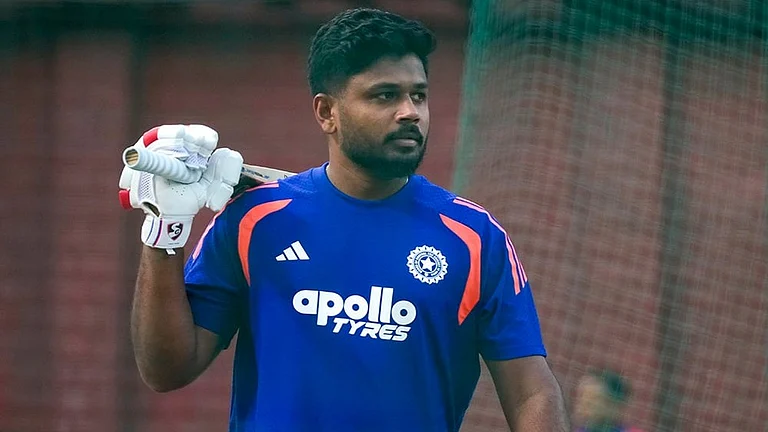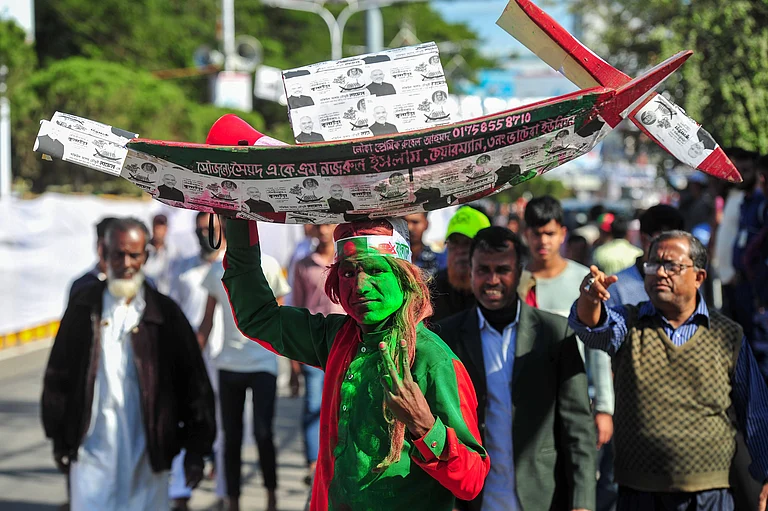Padma Vibhushan Pandit Shiv Kumar Sharma breathed his last on the morning of May 10, 2022, in Mumbai and when the close family shared the news initially it was to a disbelieving world of his admirers. Panditji was expected in Bhopal, after all, just next week, where he was supposed to be playing a concert and he was never one to cancel. But sadly the sources were correct; the maestro who had mesmerized audiences for decades had taken leave forever. It was a curtain call, the end of a remarkable journey, which had begun in Jammu, 84 years ago.
He had been a legend even then, when we first met, in the early 90s, at his beautiful apartment on Zig Zag Road, Pali Hill. The late evening sun had slanted in through the windows and he looked even more handsome in real life, almost like some Grecian idol. That first meeting had been an invitation to perform in Kolkata for Gangotsav, a concert I had conceptualized on the banks of the river and to my delight, not only had he agreed immediately, he also very kindly introduced me to his colleagues whose participation (alongside his own) made for a memorable evening of music.
There were other concerts, that followed, elsewhere, and that was what marked the beginning of a burgeoning friendship that only deepened over the years. Along with Shivji, I soon got acquainted with his wife Manorama and his sons, Rohit and Rahul and in time, Rajeev Apartments became a regular haunt on my visits to Bombay, where many an evening was spent listening to music, conversing and most often just listening to Shivji, who was a brilliant raconteur and could keep his listeners enthralled even with his words. It was during a random conversation on one of my visits that we both agreed that it was time for a memoir to be published, in a few years he would be turning sixty, after all, it was about time. The idea once expressed became a personal obsession and I remember bringing over several writers to meet with him to take the idea further. However, it did not work out so easily because each person was deemed not quite the ideal candidate for a range of reasons till he declared out of the blue, one evening that he had decided whom to ask. My elation turned to consternation when he said he wanted the both of us to write together and that was how ‘Journey with a Hundred Strings’ came to be.
My initial apprehension was quelled when he said that he would narrate his story while I would write and interview the others who were a part of his life and journey. This was to be my first publication but I took courage from Shivji’s trust in me and when Penguin came on board I became more confident, drawing up a list of names I would have to interview and then travelling with Shivji and his team to record conversations. With musicians, students, family members and friends.
I had the rare privilege of learning about the intricacies of the santoor from the master himself and he was never impatient with my questions, sometimes playing a few notes so that I could comprehend the point he was making. And then, I met musical legends whose music I was already familiar with, icons like Pt Ravi Shankar, Ustad Ali Akbar Khan, Ustad Vilayat Khan, Ustad Bismillah Khan, Ustad Allah Rakha and Vidushi Kishori Amonkar as well as Shivji’s close friends like Pt Hari Prasad Chaurasia, Ustad Zakir Husain amongst others who had been his co-travellers on this incredible journey.
While documenting Shivji’s life, what struck me, again and again, was his graciousness and dignity, the way he treated everyone as an equal perhaps only because he had experienced disparity himself as an adolescent tabla player when he played with renowned musicians for All India Radio, Jammu. As I got closer with Bhabiji (Manorama) I learnt about their struggle as a young couple in Bombay where they had moved soon after their marriage in the 60s. Something she had said still remains with me.
After marrying a musician who was devoted to his music she had learnt to cope but sometimes she was tempted to hide the musical instruments away only so that she could have her husband’s undivided attention. Rohit, his son family’s excitement when they had bought their first car and could go for long drives in that yellow Fiat. As we put our story of the journey together, my collection of tapes grew, the interviews spanning from his early life to the present. I was invited to their son Rohit’s wedding and later witnessed the excitement of Rahul’s first appearance in Kolkata’s Birla Sabha Ghar as a Santoor exponent in his own right, making his guru and father proud.
An unforgettable memory from that evening was how Shivji and Rahul, both cricket fans, joined my son in his room to watch a cricket match that was going on! Shivji was a connoisseur who thoroughly enjoyed food and another occasion that comes to mind is having Shivji and Hariji over for a meal and their hearty appreciation of the meal, to which they had done full justice. Alongside meeting the classical musicians, I also met Yash Chopra with whom he had a long association, having composed music for his films over a span of time in collaboration with Pt Hari Prasad Chaurasia. It was quite a feat to compose film music for several commercially successful films even when he and Hariji were performing on the classical musical platform but so they did, with élan under their pseudonym Shiv-Hari. Our memoir was published soon after Shivji’s 60th birthday and we were delighted to see the response, to see regional language publishers bring out translations of ‘Journey with a Hundred Strings’.
A few years later, at the request of another publishing house, we brought out a coffee table book, which had photographs from rare archives. Our next creative project was ‘Antardhwani’, a biopic on Shivji’s life and music, which was directed by Jabbar Patel and produced by the Indian Films Division. The experience this time was unique, while I had written about his early childhood, this time we were actually in the room on the top floor where he sat for hours doing riyaz with his guru and father Uma Dutt Sharma, who was determined to make santoor his saaz even though the young boy had already become an expert tabla player who accompanied renowned musicians of the day including Begum Akhtar. As Shivji recollected his memories, his eyes misted and instead of words, he played a few notes on his santoor, lost momentarily in the past.
Later, at his Mumbai studio, in a reversal of roles, he played the tabla for us while Rahul played the santoor, to reiterate that times had changed even though the leitmotif in his case was the tabla that he had played then and was playing now. ‘Antardhwani’ won the Rajat Kamal the following year and the screening brought alive those moments again. In recent years, Rahul had become a sought after musician in his own right and not only played in the classical circuit but also composed music with international bands.
To his greatest joy, Rahul’s son, Abhinav, showed great promise to follow in his grandfather and father’s footsteps and he would never tire of describing how the boy, even as a child responded intuitively to music. Shivji would have enjoyed teaching him, and sharing stories of his life and he had many stories to tell. Like the time he went to the US on the invitation of Pt Ravi Shankar accompanying a group of brilliant classical musicians from India in the 60s and met George Harrison. Or the time he went to Calcutta in 1957 with Pt Jasraj and attended music conferences night after night, lost in a trance after listening to the performances of the great maestros, walking back home exhilarated, impatient to step into the arc lights themselves someday.
That he had realized the dream soon afterwards is history, when he brought the music of the santoor on the international circuit receiving fame, recognition and glory wherever he performed, keeping the promise he had made to his guru years ago in Jammu. I had spoken to him last month from Srinagar to say the tulip gardens still evoked Silsila in public memory and I could hear several versions being sung by the visitors all around me. Apart from the legions of admirers of his classical music, there would always be a special place in people’s hearts for the popular film songs he composed. I was not to know that it would be the last time we would speak.
Posterity will remember him as a musician who was unafraid to challenge established norms and open to experimenting and creating his own brilliant, original style.
(Ina Puri is a writer, art curator, documentarian and collector. She has authored memoirs and edited major publications on contemporary Indian artists. Views expressed are personal)


























